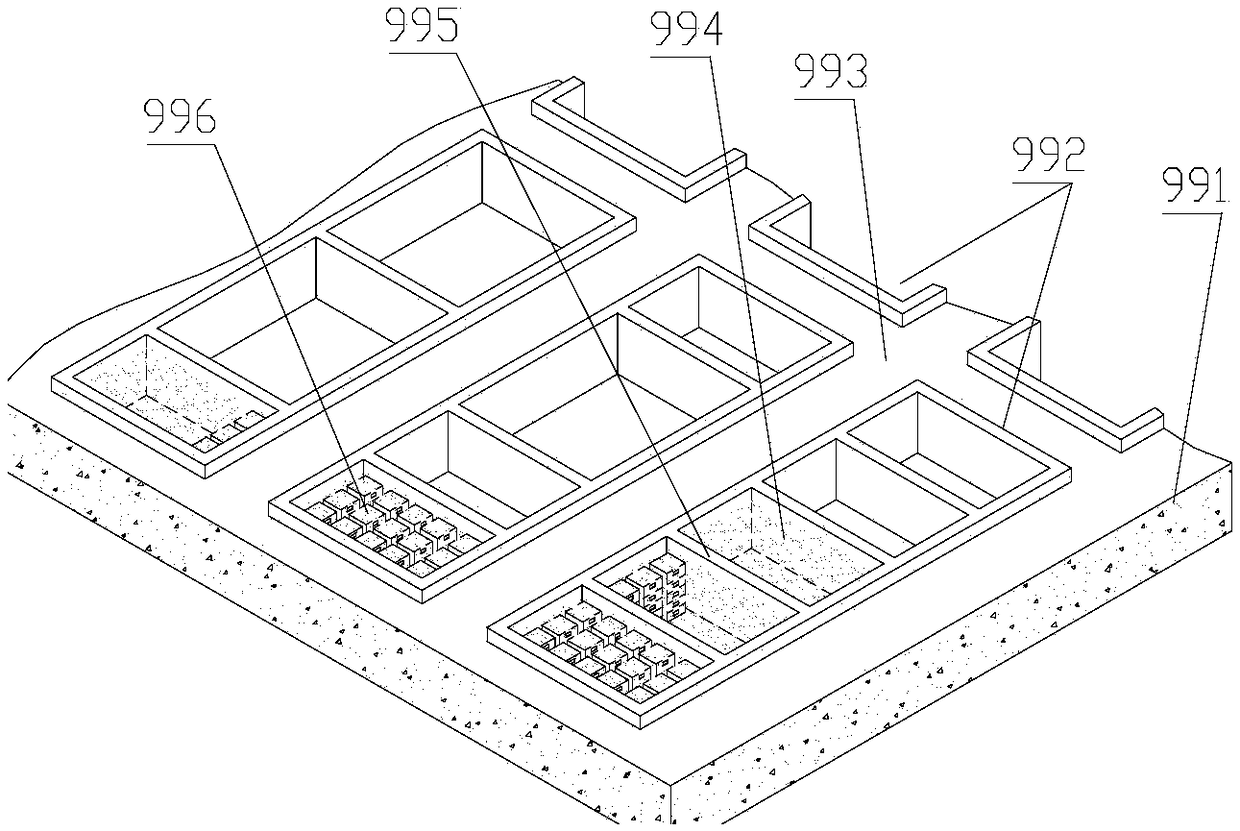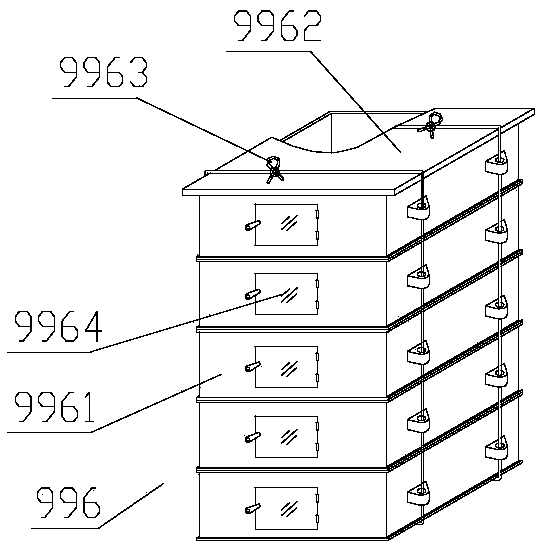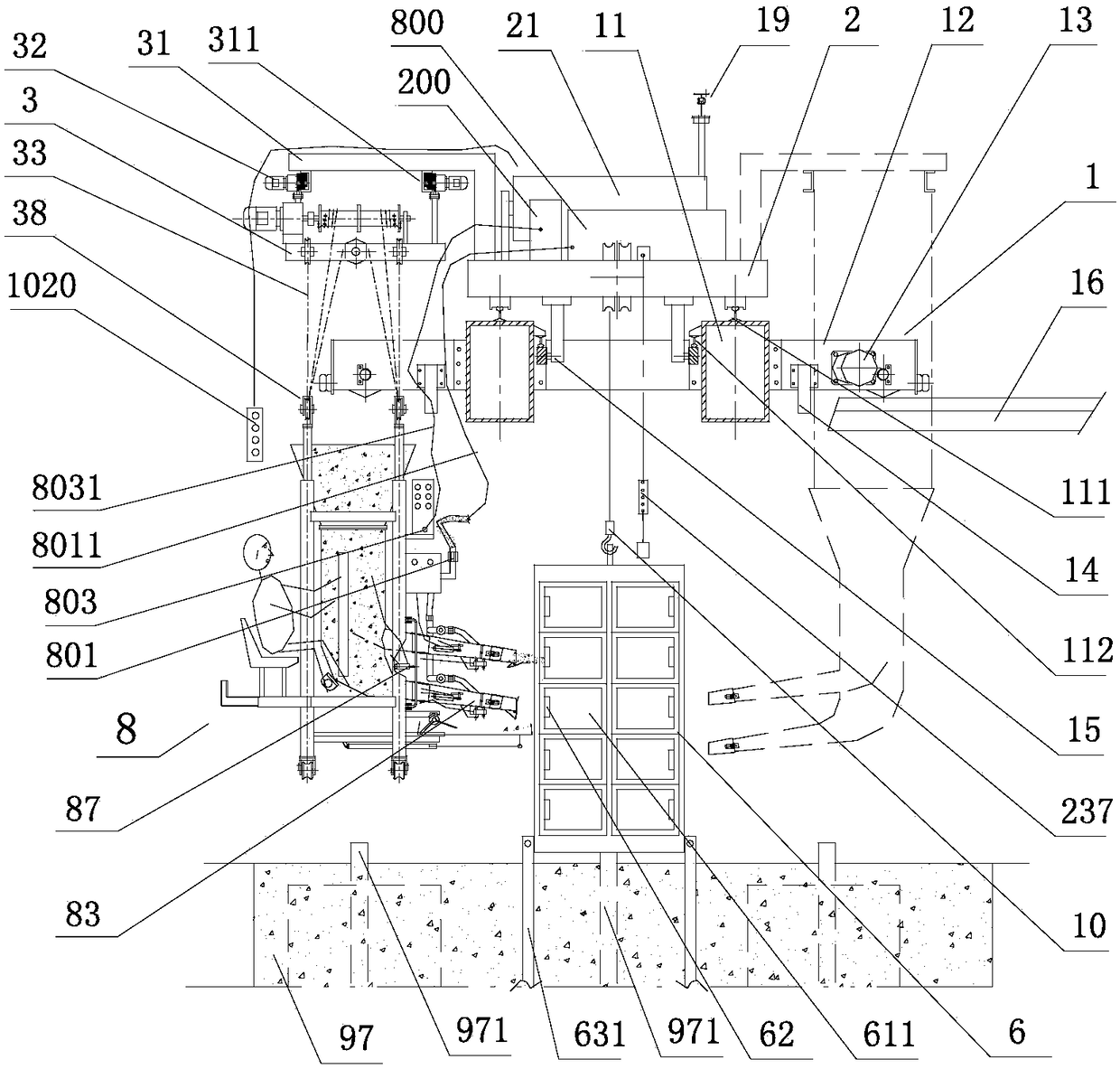Abalone culture feeding system with leaked material receiving device
The technology of a receiving device and a feeding system is applied in the field of feeding systems for feeding feed in a breeding box, and can solve the problems of errors, easy slippage, and the need to open the box for cleaning.
- Summary
- Abstract
- Description
- Claims
- Application Information
AI Technical Summary
Problems solved by technology
Method used
Image
Examples
Embodiment Construction
[0056] The technical solution of the present application will be further described in detail through the following embodiments in conjunction with the accompanying drawings. Apparently, the described embodiments are only part of the embodiments of the present application.
[0057] Such as image 3 , Figure 4 , Figure 5 As shown, it is the front view, side view, and top view of a kind of abalone culture feeding system with leakage receiving device described in the first embodiment of the present application. The feeding system includes a culture pond 97, a culture cabinet 6, Crane 1, feeder 8, air compressor 800, a pair of limit guide columns 971 are provided in the culture pond 97, the limit guide columns stand vertically on the culture pond, and one end is fixed on the bottom surface of the culture pond On, the limit guide column is provided with a limit groove rail in the vertical direction, a bell mouth is provided above the limit groove rail, water is housed in the cul...
PUM
 Login to View More
Login to View More Abstract
Description
Claims
Application Information
 Login to View More
Login to View More - R&D
- Intellectual Property
- Life Sciences
- Materials
- Tech Scout
- Unparalleled Data Quality
- Higher Quality Content
- 60% Fewer Hallucinations
Browse by: Latest US Patents, China's latest patents, Technical Efficacy Thesaurus, Application Domain, Technology Topic, Popular Technical Reports.
© 2025 PatSnap. All rights reserved.Legal|Privacy policy|Modern Slavery Act Transparency Statement|Sitemap|About US| Contact US: help@patsnap.com



